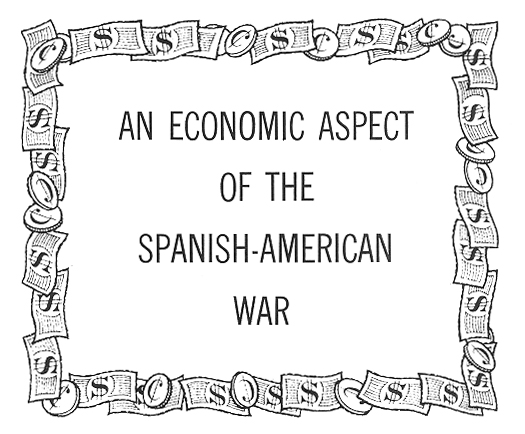Ohio History Journal
|
AN ECONOMIC ASPECT OF THE SPANISH-AMERICAN WAR by TOM EDWARD TERRILL
In the early months of 1898 the McKinley administration confronted a mounting crisis with Spain over the Cuban revolution. Domestic pressures exerted by the press and politicians, especially in the month of March, placed heavy demands upon President McKinley to intervene to pacify Cuba. One of the President's closest advisers thought war was possible in February. By March 28, he believed it was probable.1 The report on the sinking of the United States battleship Maine on February 15, 1898, and a speech by Senator Redfield Procter of Ver- mont to the Senate accounted for much of this agitation. An investigat- ing commission from the United States Navy concluded that the Maine tragedy was the result of an external explosion. Although the commission did not determine the guilty parties, most Americans saw the tragedy as the work of "Black Spain." Following a tour in Cuba, the moderate Procter reported widespread suffering and Spanish incompetence and cruelty in the island. Many American leaders thus decided that the United States had given Spain enough time to restore peace and order in Cuba. They had lost patience with Spain, and they were by then losing patience with the President.
NOTES ARE ON PAGE 100 |
